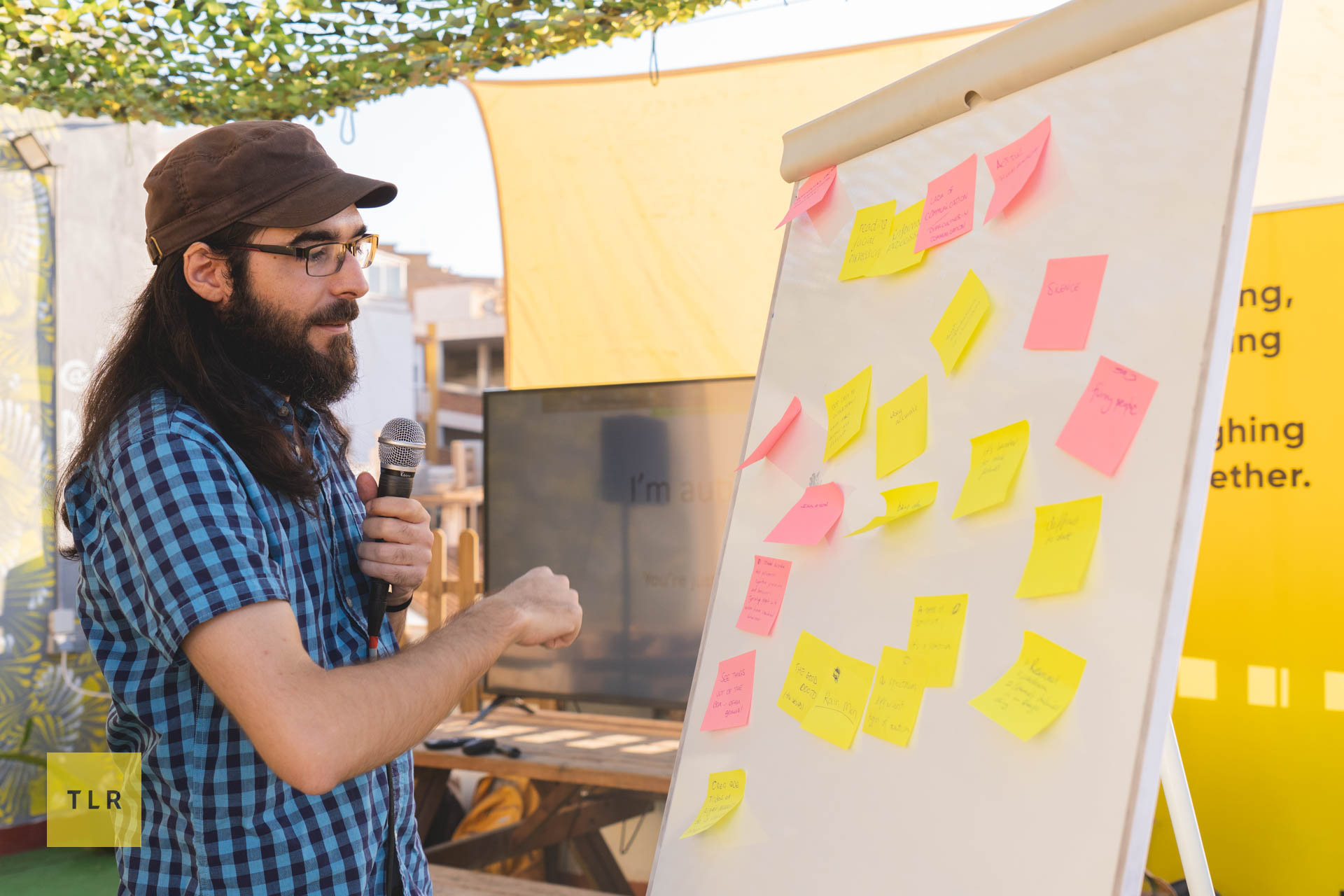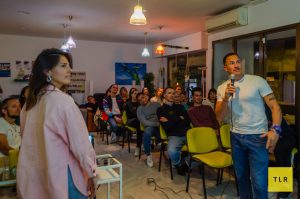Even in this day and age, many people still harbour misconceptions about what it means to be autistic- what autism is, and how it manifests. This is somewhat understandable, given how complicated it can be to explain autism to those who have never experienced it. Which is why our dear TLR Family member Miguel gave a talk about the subject at our most recent TGIF.
Five years ago, when I was 30-years-old, I received a diagnosis from my doctor. I had autism.
In many ways, this diagnosis came as a huge relief to me. It wasn’t simply that I was “weird” in certain ways – I was autistic. There was a name for it. There was a reason behind my behaviour.
I first started to suspect I might be on the autism spectrum when I was in my late 20s. Increasingly, in the media, there were more news articles about autism, and there were more characters with autism on TV and in movies. I started to realise that I related to these characters, and I began to ask myself: “What if?”
Later, I took an online test… and I found that I was answering ‘yes’ to an awful lot of the questions it was asking me.
It took a while to mentally prepare myself, but finally I booked an appointment with a doctor. I needed to find out for sure.
It was very complex, emotionally, to hear the official diagnosis. As it turned out, however, it was a huge positive in my life for the simple reason that I could now make sense of so many things about myself. So much became clear.
Knock-on Effects
Being diagnosed with autism later on in life is not exactly uncommon. Take my father, for example.
He had a lot of markers of autism also, and since there is a genetic component to autism he, at the age of 65, decided to get tested also, as a result of my diagnosis.
The doctor said yes, he is also on the autism spectrum. Like it was for me, this was a positive diagnosis for my father because now he had a reason for some of his behaviour.
While autism is something you are born with, it can go undiagnosed. However it is never too late to get a diagnosis – it can help in many ways. Even the great actor Anthony Hopkins received a late diagnosis. He officially found out about his autism when he was 76.
But the earlier you diagnose it, the sooner you can start to understand yourself and make plans to deal with certain challenges.
The Spectrum
More and more people are becoming aware of autism these days, but it is an ongoing process.
One of the main aspects people should know is that there’s no such thing as someone who is ‘a little’ autistic, or ‘extremely’ autistic. That is a gross oversimplification.
Autism is not linear. It is not simply one gradient that goes from 0 to 100. Rather, is it a whole spectrum of gradients,
Around the spectrum you’ll see some common traits of autism; language, motor skills, perception, executive function, and sensory.
The fact that you might be “more autistic” in one regard – let’s say motor skills – has no bearing on how your autism manifests in the other regards. So, you have people with fantastic motor skills and fantastic perception… but maybe they don’t have as good language skills as others.
In my case, I’m fairly lucky in the language skills department. I work as a translator. Motor skills, on the other hand…
When I was a kid I was always, always picked last in gym class. It didn’t matter what the sport was, I was always last. I was, and still am, really bad at sports. Understandably, the other kids wanted to win. Picking me wasn’t the best way to do that. So I understand.
But the main point I’m making is that autism manifests differently in everyone. And that is why we talk about it using a spectrum.
Neurodivergence (or ‘brain difference’)
Every brain is different… but some brains are more different.
Or they are different in a way that’s particularly different. It’s complicated.
The point is that autism, and ADHD, and OCD, and a whole other bunch of acronyms, all have this brain difference characteristic.
And if that sounds vague, that’s because it is. One way it’s sometimes put is that the autistic brain is a lot more focused than the neurotypical brain. You tend to focus on the details and, as a consequence, struggle with the bigger picture.
This can be a plus if you have a job that requires extreme attention to detail, for example, or if you have the ability to understand how a complicated series of rules interact with each other.
But there are also drawbacks – particularly in the social realm. The autistic brain, for example, can have a hard time recognising what is relevant and what is irrelevant when it comes to facial expressions, body language, and tone of voice.
This is something I personally struggle with a lot. I have to do a lot of extra work when I’m talking to someone. That eyebrow twitch, was that relevant? Is that something I need to interpret? Or was it just an itch they had?
Masking
Replicating or reproducing ‘correct’ behaviour in social situations is a challenge for most autistic people. For some, it’s insurmountable. For others, like myself, it’s an interesting challenge.
Body language and psychology is an area of interest for me. For me, it’s kind of an act – being controlled with my facial expressions, making sure what I’m saying corresponds with what I’m doing with my face. I’m talking now in front of a crowd and it seems very normal to you, but make no mistake, I’m doing this on purpose.
I know it sounds bad, perhaps disingenuous, but this is studied. I do mean studied – I sat down, opened books, and studied how to do this. I also studied by watching people who are good at public speaking – stand-up comedians, activists, politicians etc. I look at how they do it, I take notes, and I try to incorporate it into something that is still me… but at the same time is curated to make it easier for the average person to understand me.
This might sound strange, however it’s also something everybody does, to some degree. Let’s say your boss tells a joke. Even if it’s not funny, you probably still laugh and pretend it is, right? When your parents ask what you did at the weekend, you don’t tell them every sordid detail, do you?
Everyone, to some extent, has at some point actively cultivated the image someone else has of them. I just do it more often. I have to, because if I don’t, people get the wrong idea about me. They tend to think I’m moody, or snobby, or arrogant. They get the impression I dislike them. And that’s just not true!
Eye Contact (and other social conventions)
This is one of the big ones that people are generally pretty aware of.
For many people with autism, myself included, eye contact is extremely uncomfortable.
To me it feels very weird. Very intimate. If you are my close friend or a family member, I can look you in the eyes, but it feels too intimate for me to do it with strangers or even acquaintances. It feels like an invasion of personal space.
But those without autism tend to find it off putting, if you don’t look them in the eyes. They consider eye contact as a way to show you are interested, or are paying attention.
Now, I don’t want to give people the wrong idea. But how to do that while also respecting my own comfort? I get around this problem by looking at the space between people’s eyes. They can’t tell I’m looking there, most of the time, and so they are happy and I don’t feel awkward.
A Lack of Awareness
These are some of the points I wanted to share with you all today, but it is by no means an exhaustive list of what it means to be autistic.
As explained earlier, autism is different for every person who experiences it. There are no hard and fast rules to fully explain or understand autism.
One final thought I will leave you with – that society as we know it is not made for those with autism. At best, the world is a somewhat difficult place to navigate with autism. At worst, the world can even be a hostile environment for us.
Autism is not a disability or a disorder – it’s just that our brains function a little differently and this can be very hard to understand, because you can’t overtly see it.
If you COULD see it, it would be a little bit like having a person who was either extremely tall. Or extremely short, for that matter. You’d have problems like not being able to find clothes that fit, or problems with getting in and out of cars, or using sinks.
Unlike when something like this happens in the body, for those with autism it is happening in the mind. It isn’t something people can immediately see.
This is why there is still a lack of awareness about autism. But hopefully, some day, it will be understood by the masses a little bit better. So keep asking questions, keep reading blogs like this one, keep listening to talks like mine and we will get there, eventually. Together.
About Miguel

Miguel, who is bilingual in Spanish and English, works in both languages. He used to work as an English teacher at the Britannia School of English, but has since started his own freelance career as a translator. Miguel is actively involved with AMSA, the Málaga Association for Asperger Syndrome and Autism Spectrum Disorder.
When he isn’t working or pursuing his passion for languages, or playing video games, Miguel enjoys meditation and self-development.
To read more blog posts by TLR members, check out our blog feed here. You can also click here to learn more about TLR subscriptions.













